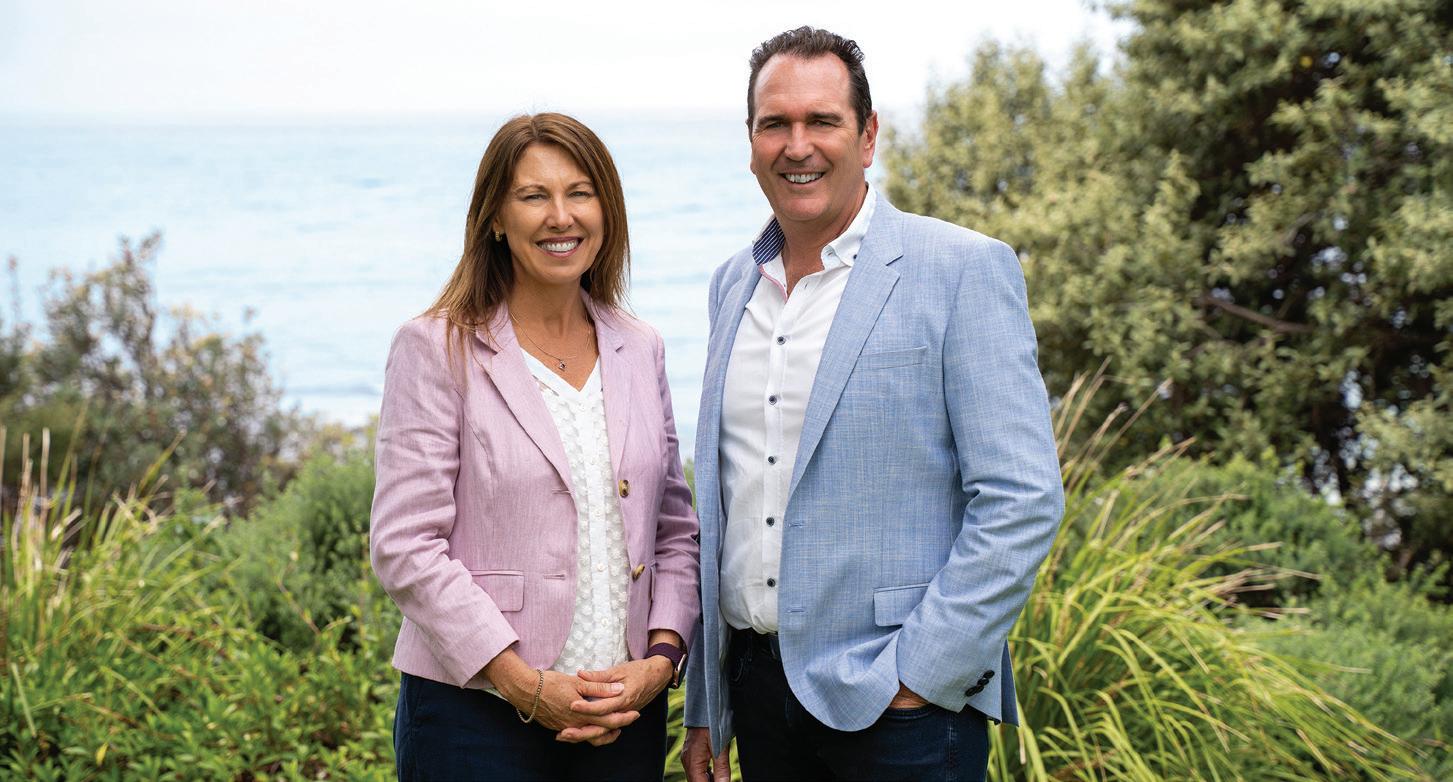
7 minute read
Coffee, Tea, Energy Drinks Diet Cola, Pre–work Outs… zing or zzzz?
BY DIANA ARUNDELL – UNIVERSITY QUALIFIED NATUROPATH & NUTRITIONIST
Caffeinated beverages can do more than give a little kick of energy and have far–reaching effects on your health and well being than you may realise. The main surprise may be that these stimulating drinks can contribute to the fatigue you are trying to escape.
Caffeinated beverages may also be contributing to the following: a reduced absorption of nutrients (minerals such as iron, zinc and calcium in particular), increased anxiety, disturbed sleep, an increase in hot flushes and sweats.
Caffeinated beverages can suppress the appetite and whilst this may sound appealing to people wanting to lose weight, it can have the opposite effect in the long run. Many people are very rushed in the morning and rather than fuelling the body with a nutrient dense breakfast, many just have a coffee and fly out the door. The caffeine provides a well–received kick of energy and suppresses the appetite so then there is no real interest in breakfast. A little later in the morning or closer to lunch time, the caffeine wears off and lethargic low blood sugar levels ensue. Due to the suppressed appetite, people don’t feel like really eating so they have another coffee which again kicks up the energy and further suppresses the appetite. Later when this caffeine hit wears off, extra fatigue can be felt as a huge afternoon slump. This is exacerbated as there has been minimal if any, real metabolic fuel supplied to the body and the only energy supplied was an artificial, temporary energy which has worn off and suppressed the desire for proper nutritional intake. The afternoon energy slump can lead to bingeing on sweet or high carbohydrate/low nutritious food as the cells and brain are now starving so food that will increase blood sugar quickly is craved. Maybe a decent dinner is consumed but one good meal a day isn’t enough to provide essential nutrients for cellular health, metabolic function and good energy levels. Then the cycle of feeling fatigued and needing caffeine begins again.
The above scenario of drinking caffeinated beverages such as coffee and energy drinks can lead to further fatigue due to a legitimate lack of nutrients for the cells to produce good energy. Lack of nutrients can be a result of simply not enough nutrients consumed due to the suppression of appetite, as well as caffeine’s interference with the absorption of minerals. For example, if an iron supplement is to be better absorbed, it needs to be taken at least 2 hours away from caffeine. Coffee and tea consumed around meal times can also impact nutrient absorption due to caffeine and tannin content respectively.
Fatigue can be further exacerbated if good quality sleep is affected by caffeine in the body – even if an individual doesn’t feel a ‘hit’ from drinking tea or coffee, it can physiologically still affect
CHILDREN’S SLEEP STUDIES PAEDIATRIC CONSULTS ENT CONSULTS SPEECH PATHOLOGY ALLERGY TESTING
the nervous system and consequently sleep quality. Most people can tolerate one cup of coffee before midday without sleep disturbance and it’s often that second cup that creates issues. Fatigue may also be a symptom of dehydration and as caffeine is a diuretic, this is another pathway to increase fatigue, although this can be avoided by conscious hydrating fluid intake.
Hot flushes experienced through the menopause transition and sweats generally, can noticeably decrease when caffeine is eliminated or significantly reduced. Likewise, for those with an anxious or upregulated disposition, the nervous system can feel significantly more relaxed without caffeine in the system. This is especially noticeable for anxious individuals who take ‘pre work out’ formulas, as these can overstimulate their nervous system and lead to palpitations and heightened anxiety.
Too much caffeine via energy/soft drinks/tea/coffee can impact bone density problems due to reducing the absorption of minerals and also by contributing to a more acidic environment in the blood. The blood has a very narrow range of pH that it likes to maintain and if that becomes too acidic, the blood may draw down calcium from the bones to buffer the acidic blood environment.
How much is too much? Generally speaking, one coffee per day in the morning after breakfast and before midday works well for most people. Eating breakfast first ensures nutrients are consumed and absorbed before the appetite is suppressed. Drinking a caffeinated beverage ideally two hours or more after breakfast, or at morning tea break works well as it doesn’t interfere with nutrient absorption from breakfast or morning supplements. If someone has an anxious disposition, eliminating all caffeinated beverages is the best option.
Caffeine withdrawal is a real issue and can lead to intense headaches. These however only last for a day or two and gradual withdrawing can help, as can substituting with green tea which contains smaller amounts of caffeine.
It’s not all bad news when it comes to caffeine – we know that there are benefits to having moderate amounts of coffee for example. These include improved alertness, performance, mood and even a reduced risk of cognitive degeneration, however too much caffeine can have the opposite effect along with the negative effects listed above. Individual constitutions need to be considered however generally speaking, 1 cup of coffee a day before midday and away from meals works well for most. Energy drinks and pre work outs are not recommended and instead, use food options to help increase energy and training performance.

B.H.Sc (comp medicine) B.A., N.D., Dip. Nut, D.R.M.
Nutrition Herbal Medicine Fertility Management Children’s Health Wellness Programs 0410 465 900
avocanaturopath.com.au
naturopathdiana@gmail.comnutrition and wellness | herbal medicine | 118 Avoca Drive, KincumberB.H.Sc (comp medicine) B.A., N.D, Dip. Nut,
Diana Arundell is a university–qualified naturopath and consults from her Avoca Naturopath clinic. She has a special interest in fertility and pregnancy health, digestive health, immune function and family wellness programs. She was a nutrition lecturer at Macquarie University for 10 years, and is an accredited Journey Practitioner. For further information or to make an appointment please contact Diana Arundell at Avoca Naturopath on 0410 465 900.

Leading Long Jetty agency partners with Australasia’s leading group
Ray White has recently expanded its operations on the Central Coast into the thriving hub of Long Jetty, and in doing so marks the return of leading real estate agent Peter Moran and his agency, to rebrand to the familiar yellow.
Having successfully traded as Property Central 2261 for the past ten years, the change to Ray White was an easy transition for the business as more than half the team had previously been part of the Ray White group before.
“The change to Ray White felt like a natural fit for our agency. We are a locally family owned and operated business, so it feels right to transition to such a well–known brand such as Ray White which itself is a family owned company,” Mr Moran said.
With over 30 years of experience under his belt, Peter Moran described the change as an exciting time that will deliver huge opportunities for clients.
“The network of offices is extensive, provides enormous exposure for our vendors and landlords well beyond what we have previously been able to provide, as well as the most up to date technology that is proving to be a vital component of today’s innovative real estate offices,” he said.
“This is a wonderful homecoming for us, and we genuinely just really like and respect the corporate team and the extended Ray White network,” he said.
Mr Moran and his wife Janelle Moran have run one of the most successful agencies on the Central Coast, and have built a stellar reputation amongst the local community whilst employing 15 staff members.
The pair who are raising their own family in Long Jetty, understand better than anyone the appeal of life here.
“I grew up in Bathurst, but used to come here regularly for the school holidays as a kid. Similarly, a lot of the locals who live here now used to holiday here as kids,” Mr Moran said.
“It is just one of those places; the beautiful beachy relaxed lifestyle those in the big busy cities dream about.”
Ms Moran said that the area had undergone significant changes in the past decade, with many retail shops, cafes, and bars popping up in the seaside/ lakeside town.
“The land here is really sought after, because we are flanked by water on both sides.”
The properties sold by the team range from small entry level units, to large waterfront multi–million dollar homes, to semi–rural acreage.
“We experienced a huge influx of buyers during the pandemic, particularly those from Sydney who want some more space and are wanting a more relaxed coastal lifestyle,” Ms Moran said.
The Moran’s said that their first year with Ray White will be continuing their sales growth under the new brand, and further growing their rent roll.
“We are backed by a fantastic team who are full of local area knowledge and experience,” Mr Moran said.






